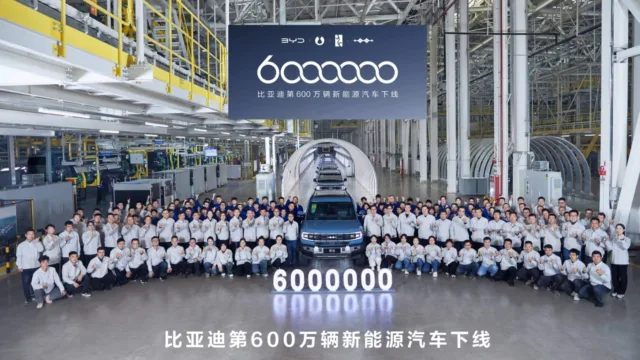
BYD is a reputable Chinese automotive manufacturing company that produces both battery electric vehicles and plug-in hybrid cars for sustainable transport. Established in 2003 under the parent company that manufactures batteries, this brand has since produced many impressive vehicles to rival even the greatest of industry leaders. Now, BYD is investing an exorbitant amount into beating its rivals in the energy transition.
The popularity of electric cars as a sustainable form of transportation
The world is steadily turning away from its reliance on greenhouse gases, towards a more sustainable form of fuel such as electricity. This power source has been particularly popular in the automotive industry for several reasons. For one, electric vehicles produce zero tailpipe emissions, making them a vastly greater option when trying to preserve the environment.
These vehicles are also more affordable in the long run, as their maintenance and operational costs are actually lower over time than their petrol and diesel counterparts. Electric cars give drivers a smooth, silent, and powerful drive, and have slowly and surely made their way up in the market to rival some of the most popular traditional combustion vehicles.
BYD is a company that has shown great success in the EV industry, and its recent investment shows they are only planning on expanding their operations and supplying even more sustainable options for the world.
BYD invests a whopping $600 million into sustainability in Brazil
With strengthening economic ties between China and South America, BYD has committed to investing $600 million into a building complex in Bahia State, Brazil, to produce more electric and hybrid cars, buses, and trucks. BYD is constantly showing how they are on the rise to overtake industry leaders (check out how it rivals Tesla here), and these investments are just further evidence of this.
This collaboration between the nations exhibits the strong trade relations they currently have, and BYD is optimistic about its opportunities in Brazil. Stella Li, global vice president of BYD, has said that their:
“dream is to build Bahia state as a centre of innovation and high technology.”
Brazilian President Luiz Ignacio Lula da Silva is happy with this association, as he says he aims to reindustrialise Brazil with support from China. This massive investment will certainly help both parties reach their goals, as well as support the transition away from harmful pollutants towards the adoption of electric vehicles around the globe.
Experts weigh in on the pros and cons of this investment
Certain Western manufacturers have left Brazilian turf over the past few years, but with reinvestment from the likes of Chinese companies, reindustrialisation here, and within other South American countries, is looking promising. Political scientist Mauricio Santoro, who is also the author of Brazil-China Relations in the 21st Century, weighs in to explain:
“There is no geopolitical tension here with China, unlike Europe, the USA or Canada. There is no vetoing of Chinese companies, the great example being Huawei, which operates in Brazil with total freedom.”
He adds that:
“[BYD is] going to use Brazil as an export platform to other countries in South America, to countries like Argentina and Chile, which is something that other multinationals also do here.”
His predictions have appeared to come true in part, as BYD considers further investment in an EV plant in Jalisco, Mexico, which may not be part of South America, but is very close geographically.
The commitment to creating these industrial plants will generate jobs for local people and improve Brazil’s (and other nations’) electric vehicle market by providing affordable options. This is not the only place BYD is investing in (they’ve committed to important initiatives here too) as they expand to benefit as many nations as possible, as well as the earth’s environment along the way.









